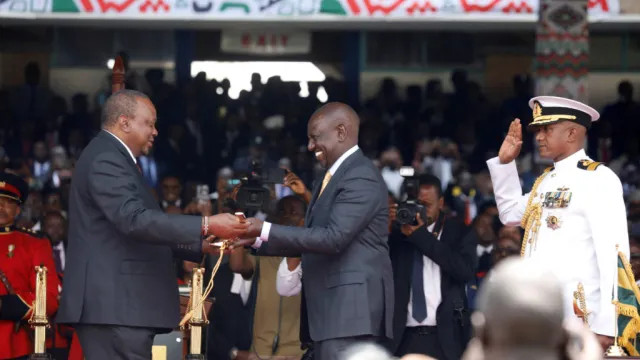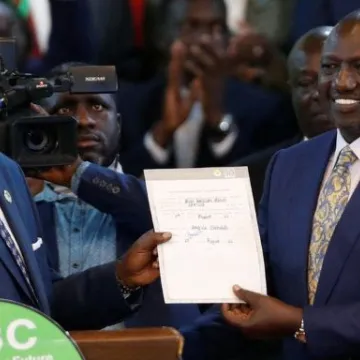Power handover sabotage to cost officials Sh10M, jail time

New Bill proposes that the President-elect and Deputy President-elect should receive security arrangements equivalent to those of the sitting President and the Deputy President.
Senior State officials will be risking a fine of KES10 million, 10-year jail term or both if they are found guilty of obstructing the assumption of power of new president in Kenya according to a proposed law.
The Assumption of Office of President and Transition of Executive Authority Bill, 2024, proposes strict legal provisions that are designed to ensure smooth handover of power post the election of a new president.
The Bill consolidates the procedures for the assumption of office and the transfer of executive authority into a single legislative framework. The draft law, which is set for debate before the National Assembly, also introduces a unified regulation covering the assumption of office by the President-elect and the transition of executive power.
It also proposes that the President-elect and Deputy President-elect should receive security arrangements equivalent to those of the sitting President and the Deputy President.
In cases of unforeseen circumstances where, for example, the outgoing president is unable to attend the swearing-in ceremony, the Bill proposes that the handover of instruments of power would be excluded from the critical ceremony without affecting the validity of the new president’s swearing-in.
Additionally, Cabinet secretaries and principal secretaries will be expected to remain in office until the incoming administration makes new appointments. This move, according to the Bill, is meant to ensure continuity in government operations and smoothens the transition phase.
If passed by the lawmakers, the Bill states that the transition of executive power will be considered complete when the President, Deputy President, the Attorney-General, Cabinet Secretaries, Principal Secretaries, and the Secretary to the Cabinet assume office.
According to the Constitution of Kenya, the swearing-in of a new president should take place 14 days after the official results are declared unless a petition is filed at the Supreme Court. Accordingly, the apex court has 14 days to hear and determine the petition, followed by a possible repeat election within 60 days if the results are nullified.
However, post-election disagreements have always marred presidential polls in Kenya, often leading to considerable delays in the swearing-in ceremonies of new leaders.
For example, President William Ruto's victory in the 2022 elections was challenged in court by Raila Odinga’s coalition, which cited foul play in how the IEBC handled vote tallying.
Although the Supreme Court upheld Ruto’s win, the time taken to resolve the issue kept the nation on edge due to the tense political environment at the time.
Earlier in 2017, the Supreme Court annulled the results of the presidential election after Mr. Odinga’s coalition filed a petition citing irregularities in the transmission of results. This unprecedented decision forced the Independent Electoral and Boundaries Commission (IEBC) to conduct a repeat election.




